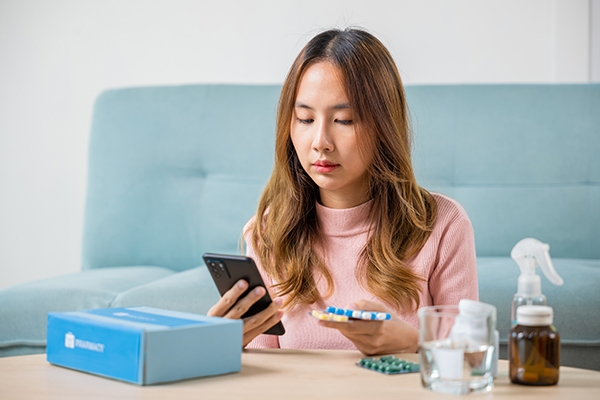Self-Diagnosis: A Quick Fix That Can Turn Risky

The internet has made it easier than ever to access information, including health-related topics. With just one click, you’re flooded with dozens of articles.
But this convenience also leads many people to self-diagnose: trying to figure out what’s wrong with their body without consulting a medical professional.
With so much health information available online, the idea of becoming your doctor might seem reasonable. Unfortunately, that doesn’t mean it’s safe.
Identifying or treating a medical condition without professional guidance can lead to serious consequences.
The rise of health-related e-commerce has made this even easier. Nowadays, people can take at-home tests, order medications, or purchase medical devices directly from their phone. Often, all of this occurs without consulting a doctor.
That’s why the growing trend of self-diagnosis is something we all need to be cautious about.
What is self-diagnosis?
According to the Indonesian Ministry of Health, self-diagnosis is when someone identifies their medical condition based on information from the internet, social media, books, or personal experience, without consulting a healthcare professional.
While it’s valid to feel concerned and want answers, drawing your conclusions can often lead to mistakes.
People self-diagnose for many reasons:
- Limited access to healthcare services
- Fear of medical costs
- Lack of understanding of symptoms
- FOMO (Fear of Missing Out) from viral health trends
Why do so many people self-diagnose?

1. Too much information, too easily available
Online forums, health blogs, and even AI chatbots can give you answers in seconds. But not all answers are accurate or relevant to your specific situation.
2. Instant reassurance
Feeling unwell? A quick search can give you a possible explanation. It might help calm your nerves for a moment, even if it’s not the right answer.
3. Barriers to healthcare access
Some people live far from clinics, can’t afford the time off, or worry about medical bills. These are real concerns.
4. Fear of the real diagnosis
Some would rather guess than hear bad news from a doctor. It feels safer, but can be more dangerous.
The risks of self-diagnosis

1. You might get it wrong
Doctors don’t just check symptoms. They consider your full history, risk factors and do physical exams.
On your own, your conclusions are often based on limited and biased information.
Example: You have a cough for three days and assume it’s bronchitis. But it could just be a common cold, an allergy, or even just throat irritation from dry air. Without a proper check-up, there’s no way to know for sure.
2. You don’t have clinical training
Doctors are trained to distinguish between similar symptoms that stem from different conditions. They use medical reasoning that can’t be replaced by a Google search.
Example: You feel pain in your lower left abdomen. An online search suggests it might be gas, kidney stones, or even cancer. You panic and take antacids. But the actual issue could be a urinary tract infection that requires antibiotics.
3. Not all online medicine is safe
Buying medicine online is convenient, but not always safe. Some online stores sell unregulated or low-quality products. The wrong medication can make your condition worse.
4. You might treat the wrong problem
Proper care is more than just taking one type of medicine. It requires follow-up and evaluation. When you guess, you risk making things worse.
Example: You apply a muscle cream for post-workout pain. But the pain is actually from an early skin infection. The cream only masks the symptoms, delaying real treatment.
5. You could delay the care you need
The longer you avoid seeing a doctor, the bigger the risk. Misdiagnosis can hide critical symptoms and lead to complications.
Example: You think your sore throat is just a cold, so you buy lozenges. But it turns out to be a bacterial infection that could spread if left untreated.
What should you do?
- Use online health info as a starting point, not a final answer
- Don’t hesitate to speak with a healthcare provider
- Avoid taking medication without proper advice
- Listen to your body, but check the facts with a professional
It’s normal to feel anxious when something doesn’t feel right. But self-diagnosing isn’t the answer.
Online health information is helpful as a guide, not a substitute for a doctor. The best care always starts with the right consultation.
Get checked
If you're feeling off, don’t wait until it gets worse. A small step like consulting a doctor can make all the difference.
GWS Medika, healthcare in Jakarta, are offering free consultations, a great opportunity to understand your health without worrying about costs.
- Free consultation
- Professional medical team
- Available for minor or ongoing concerns
Don’t wait. Get your health checked today at GWS Medika.



